One consideration that emerges immediately is: do you believe that there is enough "coherence" (for want of a better word) in this seemingly heavily JPG-ed image to try to do some kind of deconvolution on it?
There are all sorts of convolution filters you can do. I suppose what you're really looking for is a focusing deconvolution filter. There's a product called focus magic that uses this technique to try to get some detail back from out of focus pictures. I've applied it using various settings, increasing the blur width for each picture:
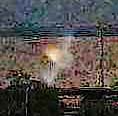
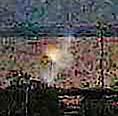
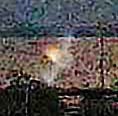
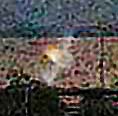
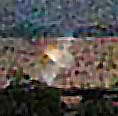
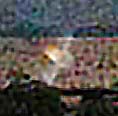
These were all applied to a crop of my own difference image, which I created using a difference of the middle frame and a combination of the before and after frames that had been processed with Neatimage to remove noise. Please note that noise was NOT removed from the frame being studied, only the two reference frames used as a baseline for the difference. Anyway, here is my difference image. Oh, I also blended the difference image with the original image for a clearer looking context. Before blending it with the original image, though, I ran an action to reduce the color blotches. The action I ran was Noel Carboni's DSLR Tools Color Blotch Removal action. It does a very good job of removing spurrious color noise while retaining lightness data.
http://the-light.com/Photography/strangebug.jpg
If so, in which direction could you proceed? I'm guessing that there is a general assumption that the flash fires so quickly that there is no motion component of the blurring; and that the blurring is purely due to too close a focus. Is there any reason to believe otherwise?
Nope.
P.S. I'm editing this post to keep the large picture from displaying inline. Now it should appear as a link instead. This should keep the messages from stretching wider than the screen.
This is DARWIN !!!








